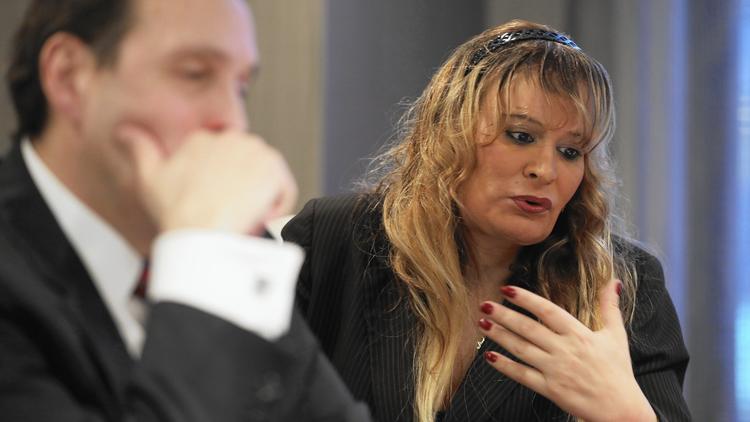
A former employee of the Chicago-based Survivors Network of those Abused by Priests has sued the victims advocacy group, alleging that SNAP exploited victims of sexual abuse by clergy in return for financial kickbacks from attorneys.
According to a lawsuit filed this week in Cook County Circuit Court, Gretchen Rachel Hammond worked as a director of development from July 2011 until she said she was fired in February 2013, shortly after asking superiors whether SNAP was referring potential clients to attorneys in exchange for donations.
In addition to the organization, defendants named in the lawsuit are Barbara Blaine, its founder and president; David Clohessy, executive director; and Barbara Dorris, outreach director.
Blaine said in a statement that “the allegations are not true.”
“This will be proven in court,” she said. “SNAP leaders are now, and always have been, devoted to following the SNAP mission: To help victims heal and to prevent further sexual abuse.”
Neither Clohessy nor Dorris could be reached for comment.
Though it did not name attorneys, the lawsuit said donations from several high-profile litigators across the country comprised a large percentage of SNAP’s income.
Jeff Anderson, a prominent Minnesota attorney for victims of clergy sex abuse who was not named in the lawsuit, confirmed that he makes regular donations to SNAP, as well as other nonprofit organizations that advocate for the safety of children. But he said he does not do it in exchange for referrals.
“I have supported SNAP and a lot of other organizations that help survivors throughout the country, unapologetically,” he said.
“The allegation is explosive because it’s unethical,” he added. “I’ve never done it nor would I ever do it.”
According to the lawsuit, Hammond grew suspicious of SNAP’s methods when she was not permitted to participate in an internal audit of SNAP by an accounting firm and was barred from attending survivors’ meetings, group therapy sessions or counseling sessions to help generate material for grant proposals.
She also was given access to a list of lawyers who regularly donated to SNAP but was told to never tell anyone that lawyers donate to the organization, according to the lawsuit. At a news conference, Hammond said she raised more than $950,000 for SNAP during her 19 months there.
A Missouri judge ruled in 2012 to open more than two decades of correspondence with victims, lawyers, witnesses and journalists to shed light on whether SNAP had coached victims to fabricate claims of repressed memory.
Shortly after that, Hammond said, she was accidentally copied on an email from Clohessy to an attorney, asking when he could expect the next donation, the lawsuit said. It was then she began to ask questions and the workplace climate dramatically changed, she alleged in the lawsuit.
She said she began to collect evidence of what she believed to be a kickback scheme, copying reams of documents and downloading records on a flash drive she used to do work at home. When SNAP sent a volunteer to her apartment to collect the flash drive, she did not disclose that she had copied it, the lawsuit said. She was fired two days later, she said.
Though she decided not to go to authorities at the time, the movie “Spotlight” renewed her concerns and she sought legal counsel. Hammond alleges she could not find employment that paid as much as she made at SNAP and is seeking compensatory damages, attorney’s fees and expenses.
Complete Article HERE!
